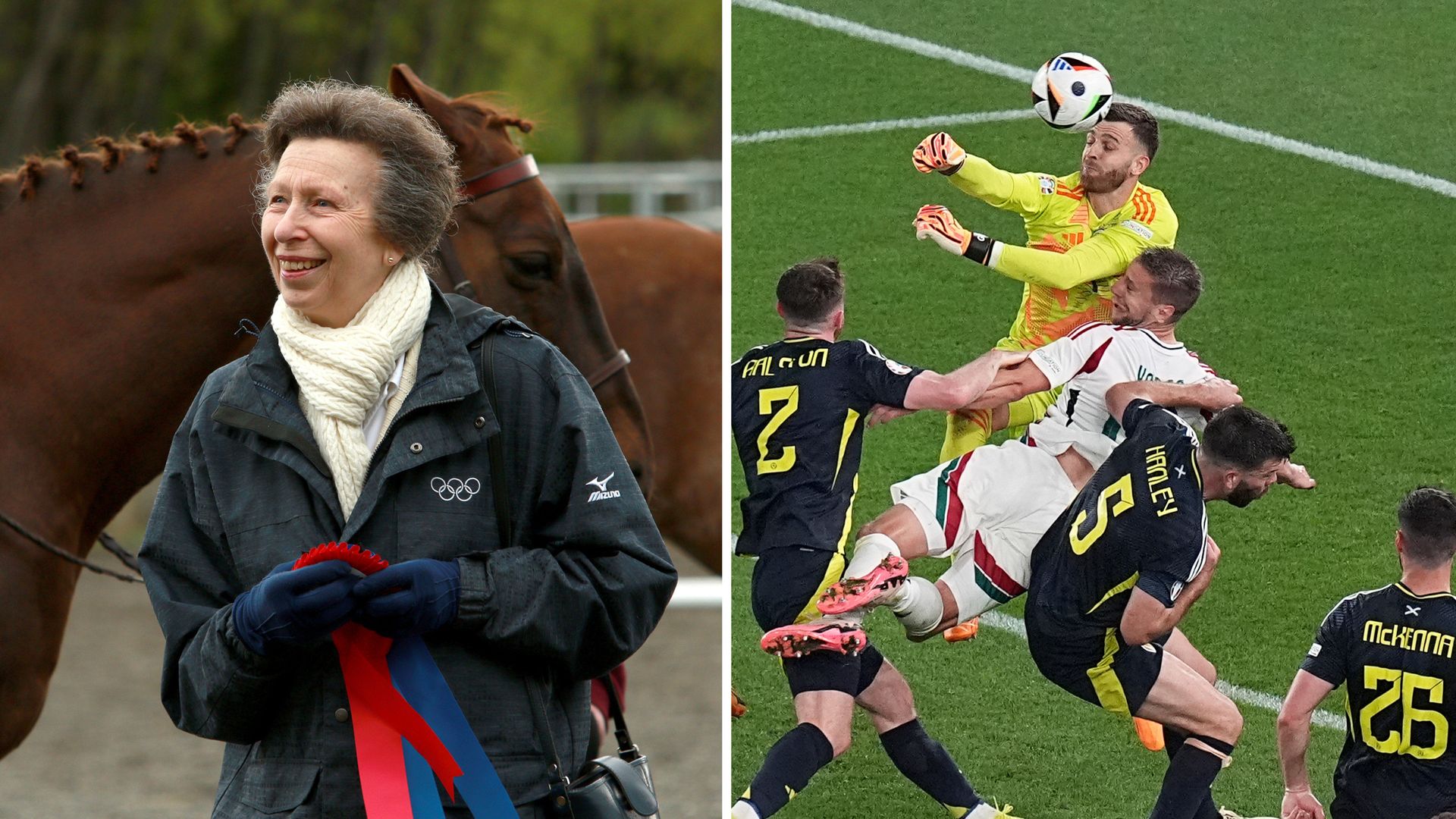Concussion injuries have been thrust into the spotlight after both Princess Anne and Hungarian striker Barnabas Varga were hospitalised on Sunday evening.
The 73-year-old princess suffered a concussion when she was hurt on the Gatcombe Park estate in Gloucestershire.
Although the cause of her head injuries has so far been unconfirmed, her medical team said they were consistent with the impact from a horse’s head or legs.
It came as hundreds of miles away in Stuttgart, Germany, Varga was stretchered off the pitch during Hungary’s Euro 2024 match against Scotland.
The striker broke several facial bones as well as suffering from a concussion, the Hungarian Football Association said, after he collided with opposing goalkeeper Angus Gunn.
So what is concussion?
It is a mild traumatic brain injury that impacts how the brain functions.
Symptoms can include headaches, as well as problems with concentration, memory, balance, mood and sleep.
However, its effects are usually short-term.
While some concussions knock people unconscious, most do not – and the majority of individuals make a full recovery.
It can also cause ringing in the ears, dizziness, blurry vision and vomiting.
Slurred speech or a dazed expression are also signs of a concussion, and symptoms can take a few days to appear.
What causes it?
A concussion is caused by “a shaking of the brain inside the bony skull” that tears brain tissue and blood vessels and bruises the brain, according to Johns Hopkins University in the US.
Although falls are one of the most common causes of concussion among adults, people who play contact sports are also at risk, prompting several sporting organisations to bring in strict rules around head injuries in recent years.
The Football Association (FA) announced last month it was banning headers in under-11s teams and last year told coaches of all age groups to force players to immediately leave the field of play if a concussion is suspected.
In its updated guidance in 2023, the sporting body said suspected concussion victims should not return to playing in games until they have recovered for at least 21 days.
The England and Wales Cricket Board follows the same guidance, while the World Rugby organisation states that “any player with concussion or suspected concussion should be immediately and permanently removed from training or play” for the rest of the day.
Read more from Sky News:
Jay Slater’s dad says family being kept in dark
Teenager shot dead in Liverpool
Killing Willoughby was suspect’s ‘ultimate fantasy’
Repeated episodes of concussion can cause long-term problems with mental abilities and trigger dementia, according to the NHS.
This type of dementia is known as chronic traumatic encephalopathy (CTE) – but it is only a “significant risk” for professional athletes.
CTE is even sometimes known as “boxer’s brain”, according to the NHS.
Most cases of concussion occur in children and teenagers aged five to 14, with the two most common causes being sporting and cycling accidents.
Falls, along with motor vehicle crashes and accidents, are a more common cause in older adults, the NHS says.
Is there any treatment?
People with concussions usually need to be monitored for at least 48 hours.
This is to make sure they have not suffered any sort of brain bleeding.
Be the first to get Breaking News
Install the Sky News app for free
Keep up with all the latest news from the UK and around the world by following Sky News
Paracetamol can help control pain, but people are advised not to use non-steroidal anti-inflammatory drug painkillers like ibuprofen or aspirin as they can sometimes cause bleeding.
Patients are also advised to rest, not drink any alcohol and only return to daily activities when they feel able.






















